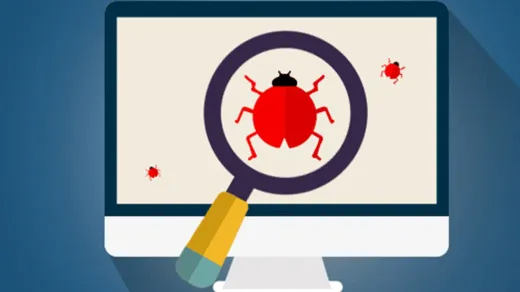Career Progression in Software Testing: A Fresher’s Roadmap

In today’s ever-changing digital economy, software specialists are in high demand. Despite its great potential, software testing as a professional decision is frequently undervalued.
Software testing is concerned with ensuring the dependability, quality, and performance of software programs, rather than simply finding and correcting defects.
As technology progresses, so does the demand for qualified software testers, making it a viable career path in the future. Whether you’re a recent college graduate or looking to change careers, there will always be a diverse range of software testing fresher jobs in the industry, for you to choose from.
Career Progression in Software Testing
Starting on the path to career progression in software testing as a fresher entails studying fundamental skills such as manual testing and software development.
Career progression in software testing will expand as long as people continue to learn.
In the field of software development, working as a software tester may be quite fulfilling. You must adhere to a plan that covers educational prerequisites, technical know-how, learning resources, developing soft skills, and finding employment in software testing before you can start your trip.
Let’s examine the steps involved in becoming a productive software tester:
- Academic Requirements
Here are the academic requirements:
- Educational Background: To start a career in software testing, you typically need a high school diploma or equivalent. However, having a bachelor’s degree in computer science, information technology, or a related field can give you an advantage, especially for more advanced testing roles. A degree can provide you with a strong foundation in software development concepts and principles.
- Certifications: While not always mandatory, certifications can boost your credibility and marketability as a software tester. Consider pursuing certifications like ISTQB (International Software Testing Qualifications Board) or the Certified Software Tester (CSTE) designation. These certifications demonstrate your knowledge and commitment to the profession.
- Gain Technical Skills
Here are the technical skills required:
- Programming Knowledge: Understanding programming languages, such as Java, Python, C#, or SQL, is crucial for a software tester. You don’t need to be a software developer, but a basic grasp of coding is essential to comprehend the software’s architecture and write effective test scripts.
- Testing Fundamentals: Familiarize yourself with fundamental testing concepts, such as black-box testing, white-box testing, unit testing, integration testing, system testing, and user acceptance testing. These concepts form the basis of software testing.
- Test Design Techniques: Learn various test design techniques, including equivalence partitioning, boundary value analysis, and decision tables. These techniques help you create effective test cases.
- Test Management Tools: Get acquainted with popular test management tools like Jira, TestRail, or TestLink. These tools are essential for organizing and tracking test cases, managing defects, and collaborating with the development team.
- Learn Tools
Here are the tools required:
- Learn Selenium, Appium, and TestComplete. Software testers must learn automation to speed up monotonous operations and boost test coverage.
- Learn Apache JMeter or LoadRunner for load and performance testing. These tools assess software system performance under different loads.
- Learn how to utilize Bugzilla, Redmine, and Mantis. Test faults are reported, tracked, and managed using these tools.
- Learn Soft Skills
Here are the soft skills required:
- Software testers need good communication skills. You must communicate findings, interact with developers, and include project stakeholders. Excellent writing and speaking skills are essential.
- Software testing requires attention to detail. You must test thoroughly to find even the slightest errors that could compromise program functionality.
- Software testing often requires troubleshooting and problem-solving. Problems must be identified, investigated, and resolved by testers and developers.
- Meeting deadlines and managing various test cases needs time management. Streamline testing to stay on pace.
- Complex software evaluation requires analytical skills. The software’s functionality should be easy to analyze and spot issues.
How to Get Jobs in Software Testing?
Here are the ways to get jobs in software testing:
- Certification and Training: To distinguish yourself, complete pertinent certifications and training programs. These qualifications can enhance your resume, rendering it more appealing to prospective employers.
- Internships: Exploring internships or cooperative opportunities is a great way for freshers to gain hands-on experience in software testing. Many companies offer internships designed for aspiring software testers, allowing them to gain practical exposure to real-world projects, which can be a stepping stone to work from home software testing jobs for freshers.
- Networking: Attend industry events, participate in online forums, and connect with experienced testers via platforms like LinkedIn. Networking serves as a valuable avenue for uncovering job openings and attaining insights from seasoned professionals in the domain.
- Continuous Learning: Stay abreast of the latest trends and technologies in software
testing. The software industry is dynamic, and the habit of continuous learning is pivotal to retaining a competitive edge.
- Entry-Level Opportunities: To initiate your career, seek entry-level roles such as “Junior Software Tester,” “QA Analyst,” or “Test Technician.” These positions commonly entail executing test cases, recording defects, and collaborating with seasoned testers.
- Job Applications: Once you’ve acquired the requisite skills and knowledge, embark on your quest for software testing positions. Customize your resume to underscore your testing proficiency, certifications, and technical aptitude.
- Interview Preparation: Prepare for interviews by rehearsing prevalent testing-related questions and scenarios. Be prepared to elucidate your testing methodology and recount your relevant experiences.
What Does a Software Tester Do?
Key responsibilities of a software tester include:
- Test Planning: Testers collaborate with project stakeholders to define the scope of testing, establish test objectives, and formulate testing strategies. They create comprehensive test plans that outline the approach, resource allocation, and testing schedules.
- Test Case Design: Testers develop detailed test cases, which are sets of specific instructions outlining how to test various aspects of the software. These test cases cover a wide range of scenarios, including typical and edge cases, to ensure thorough coverage.
- Test Execution: Testers carry out test cases by either manually interacting with the software or utilizing automated testing tools. They meticulously validate the software’s functionality and features.
- Defect Identification: If testers encounter any anomalies, they meticulously document these issues, providing essential details such as steps to reproduce, severity levels, and the affected software components. This information is crucial for developers to comprehend and address the problems.
- Regression Testing: Testers perform regression testing to confirm that recent changes or fixes do not introduce new defects or disrupt existing functionality. This practice helps maintain software stability during ongoing development.
- Performance Testing: Testers assess the software’s performance by measuring key factors such as response times, scalability, and resource consumption. This ensures that the software can handle the expected workloads efficiently.
- Security Testing: Testers scrutinize the software for vulnerabilities and potential security threats. They identify weaknesses and report them to maintain the software’s integrity and safeguard user data.
- Usability Testing: Testers evaluate the software’s user-friendliness and conformance to design standards. Their goal is to ensure that the user interface is intuitive and meets user expectations.
- Test Reporting: Testers compile comprehensive reports that summarize the results of their testing efforts. These reports include pass/fail statuses, defect reports, and any deviations from expected behavior. These reports are essential for decision-making and communication with project stakeholders.
- Release Approval: Based on the test results, testers provide recommendations regarding the software’s readiness for release. They may grant approval if the software meets the defined criteria or request additional testing or defect resolution as needed.
Conclusion
The path to evolving as a software tester involves a combination of academic qualifications, technical skills, learning tools, and soft skills. Landing your first software testing job may require persistence and networking, but with dedication and continuous learning, you can build a successful career in software testing.
As you gain experience, you may advance to more specialized roles, such as automation tester, performance tester, or test manager, depending on your interests and expertise.





